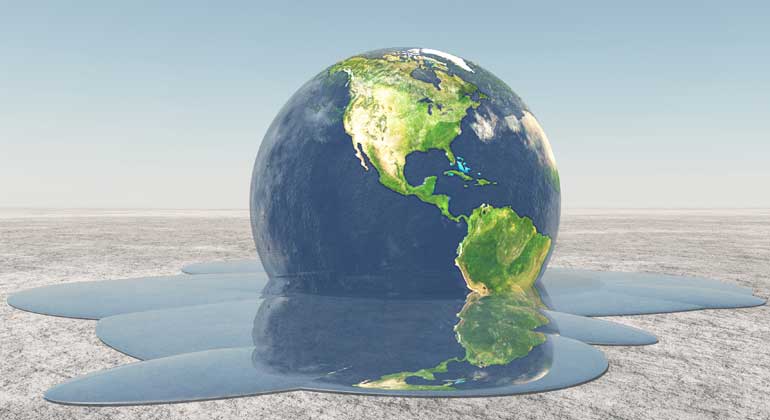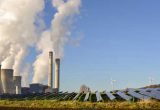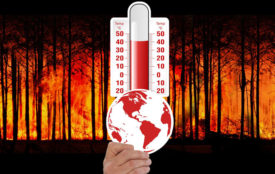Is the traffic light’s climate policy now broken?
The traffic light used corona money for climate protection. This is said to be unconstitutional. Now 60 billion is missing for the climate. Is the traffic light’s climate policy now finished?
What’s more, Fridays for Future is divided over the Middle East conflict. Is there now also too little pressure from below for a more efficient climate policy?
The “Emissions Gap Report 2023” by the UN Environment Program Unep has just shown that there is a huge gap between ambition and reality when it comes to climate protection. Globally, we are miles away from achieving the Paris 1.5 degree climate target. From January to September 2023, the global average was already warmer than 1.5 degrees Celsius compared to pre-industrial times on 86 days.
The United Nations Environment Programme (UNEP) has calculated that the air on the surface of the planet has already warmed by 1.2 degrees. This warming also includes the air above the oceans. Temperatures on land are around twice as high. This is why Germany is already over two degrees warmer than it was 150 years ago.
In order to achieve the 1.5 degree target, greenhouse gas emissions would have to fall immediately, but they are still rising. In 2030, they would have to be 42 percent lower than today. However, emissions have almost doubled since 1990. The loss of forests, which absorb some of the emissions, is also contributing to this. This is why UN Secretary-General Guterres says: “There is a huge gap between ambition and reality. We are on the way to climate hell.”
In fact, we are on a 3 degree path rather than 1.5 degrees. This means that Germany could become up to six degrees warmer. The G20 countries have a leading role to play in reducing greenhouse gases. They currently emit around three quarters of all emissions. The richest ten percent of the world’s population alone are responsible for half of all greenhouse gases. The poorer half of the world’s population emits just 12 percent.
The only ray of hope in the climate mess described above is currently the rapid expansion and development of solar energy and the rapidly growing sale of e-cars. The German Renewable Energy Federation (BEE) is calling for “long-term and adequate financing for climate protection investments to be secured and for the domestic, clean energy supply to be driven forward through the further expansion of low-cost renewable energy storage and sector coupling. Renewable energies can supply electricity, heat and molecules. As our studies and scenarios show: 100 percent and potentially also domestically.”
A rapid phase-out of fossil fuels such as coal, gas and oil is necessary to really put the brakes on climate change. And in Germany, an immediate end to 65 billion euros in state subsidies for climate-hostile products. This would also enable the German government to plug the 60 billion euro hole that the Federal Constitutional Court has just handed it. The slap in the face from Karlsruhe could thus become an opportunity for climate protection in Germany.
All the technologies for change are available. But the most important thing for a real transformation is still missing: the political will of most governments. Humanity must make a decision: Either burn even more fossil fuels and risk the future of our children and grandchildren or build a more sustainable, better planet. The next World Climate Conference from November 30 to December 12 in Dubai will have to find an answer.
- UNEP „Nations must go further than current Paris pledges or face global warming of 2.5-2.9°C“„Emissions Gap Report 2023“
- Nations must go further than current Paris pledges or face global warming of 2.5-2.9°C
Source
Franz Alt 2023 | Translated with www.DeepL.com/Translator (free version)








